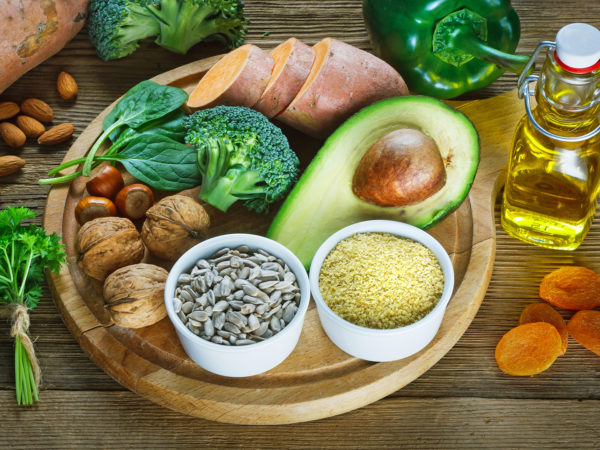Vitamin E For Your Best Health

Vitamin E is found in nature as a complex of eight separate compounds (four tocopherols and four tocotrienols), each with important functions in the body – it:
- Helps support cell membranes and protect against damage caused by free radicals, a process known as oxidation.
- Is necessary for structural and functional maintenance of skeletal, cardiac, and smooth muscle cells.
- Assists in the formation of new red blood cells and helps to maintain stores of vitamins A and K, iron, and selenium.
People taking blood thinners or aspirin should consult with their doctor about vitamin E to avoid potential drug interactions. If you do supplement with vitamin E, realize that it is fat-soluble so be sure to take it around meal timeto aid in its absorption.
You can obtain natural vitamin E in foods such as nuts, spinach, sunflower seeds and wheat germ, and true whole grains. I recommend avoiding synthetic versions of vitamin E (for example, dl-alpha tocopherol – which is often a sign of a poor quality supplement), and only using products that contain the full complex. The label should state that the vitamin E is comprised of mixed tocopherols and tocotrienols or lists them out.
Today’s Health Topics
Editor's Pick
Health Focus
Ask Dr. Weil's Q&A
| sponsor | ||
 |
||
|
||
|











